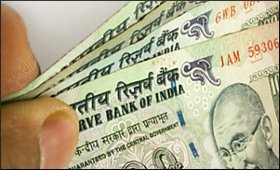|

|
Govt raises MSS limit to help banks manage liquidity surplus
|
|

|
|
| Top Stories |
 |
|
|
|
SME Times News Bureau | 03 Dec, 2016
In an attempt to manage the liquidity surplus following demonetisation of Rs 500/1,000 currency notes, the central government has revised the ceiling for issue of securities under the Market Stabilisation Scheme (MSS) to Rs 6 lakh crore from Rs 30,000 crore.
From time to time, the Centre issues 'government stock' at fixed interest rates which can be bought by the banks to get rid of their excess liquidity. By increasing the scheme limit 20 times, the government has allowed a window to the banks to make some money on the banned notes.
The RBI had directed the banks to deposit 100 per cent of the incremental money raised from September 18 to December 30 as cash reserve ratio, which would not carry any interest. This had led to quiet protests by the banks that they would have to pay out interest, at least on savings bank accounts, while not getting anything from the RBI.
The government's move, on the RBI's recommendation, is partly to overcome this issue.
In a statement, the RBI said: "After the withdrawal of the legal tender character of the Rs 500 and Rs 1,000 denomination notes with effect from November 9, 2016, there has been a surge in the deposits with the banks. Consequently, there has been a significant increase of liquidity in the banking system which is expected to continue for some time."
In order to facilitate liquidity management operations by the RBI in the current scenario, the government has, on the RBI's recommendation, decided to revise the ceiling for issue of securities under MSS to Rs 6 lakh crore, it added.
In June 2016, the ceiling for the outstanding balance under MSS for 2016-17 was fixed at Rs 30,000 crore.
Talking about the change in MSS, Keki Mistry, Vice Chairman and CEO of HDFC, in an interview to BTVi said this measure is the first step in tackling excess liquidity in the system.
Keki said the latest move by the government would be a positive step for the banks.
"It definitely benefits the banks because on the liquidity that they were currently carrying they had CRR requirements, so now at least they will get some return for that money. Certainly it is very very positive," he said.
|
|
|
| |
|
|
|
|
|
|
|
|
|
|
|
|
|
|
| |
| Customs Exchange Rates |
| Currency |
Import |
Export |
US Dollar
|
66.20
|
64.50 |
UK Pound
|
87.50
|
84.65 |
Euro
|
78.25
|
75.65 |
| Japanese
Yen |
58.85 |
56.85 |
| As on 13 Aug, 2022 |
|
|
| Daily Poll |
 |
 |
| PM Modi's recent US visit to redefine India-US bilateral relations |
|
|
|
|
|
| Commented Stories |
 |
|
|
|
|
|
| |
|